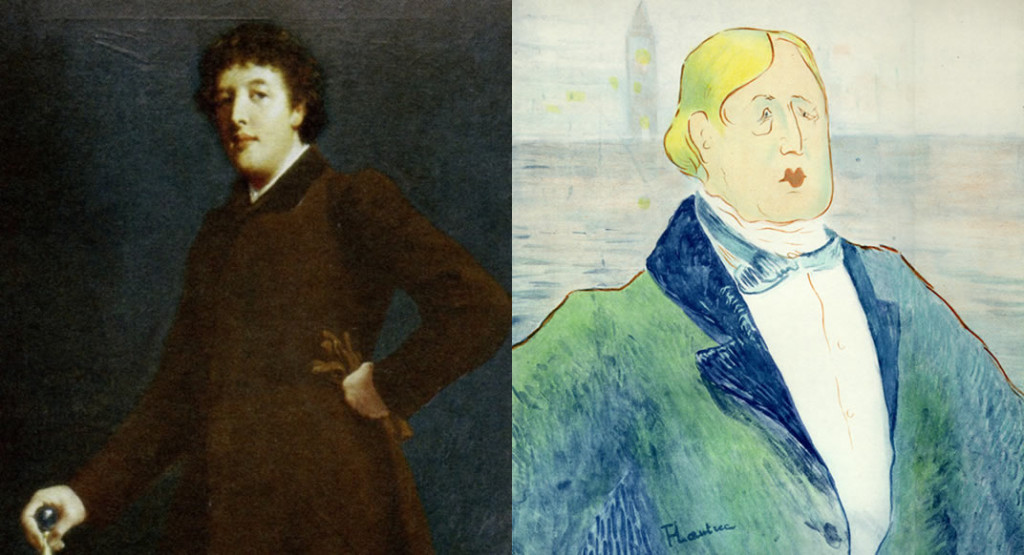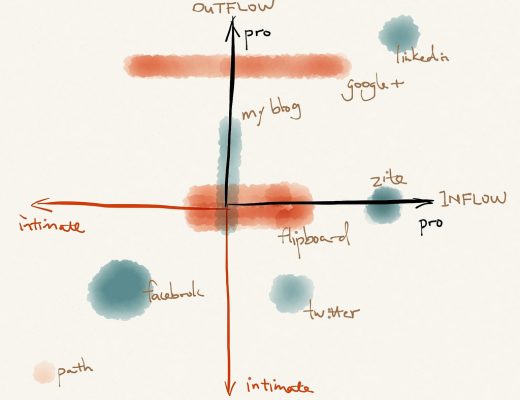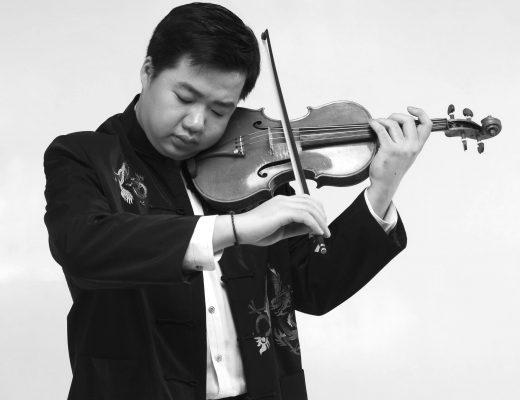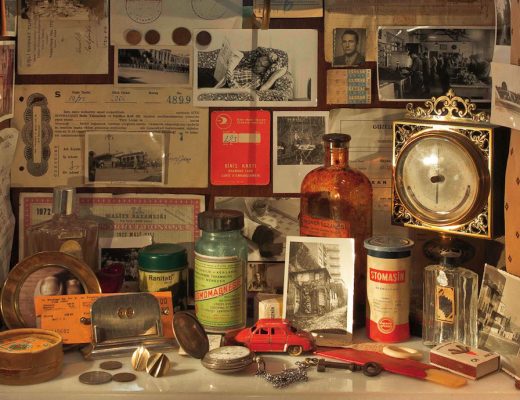In my third attempt, I finally completed reading the Picture of Dorian Gray, the only novel of Oscar Wilde, the Lord of Paradox. First two attempts failed at beginning chapters where Lord Henry obsessively enjoys his colloquial persuasions accompanied by endless arrogance and self-contradictions, bearing all the signatures of our always controversial author. Without reading a synopsis beforehand, I became bored rather quickly. This time, I had sufficient time to wait for the drama to jump in around Chapter 7 and the heat develops in Chapter 8, when Sibyl Vane is revealed dead. It always begins with death in a non-romantic novel. When more people die in the same pattern, the story is very likely involving a serial killers; otherwise, it is a cynicism about the wicked society. Wait, aren’t they all?
The plot is following the popular theme of Devil’s Bargain. When sitting for a portrait in Basil’s studio, beautiful and innocent Dorian Gray meets Lord Henry, who points out the determined fading of youth. In desperate, Dorian cries out that it should be the painting that withers and he to keep his good look. He then falls in love with an adorable and talented actress Sibyl Vane, but after he kisses her, she tragically recognizes the artificiality of acting, loses all her talents and is later condemned harshly by Dorian, which leads to her suicide. In that very night, Dorian discovers that the portrait, by developing a cruel grin, is suffering from the sins of his soul and he is clear of any business, simply regarding his fiancée’s suicide as a play and him a spectator. His flamboyant life, under the apparent influence of Lord Henry, lasts for another twenty years until he cannot control his loathe to the boring painter and stabs him to death on the top floor of his mansion, where he keeps the secret of his aging portrait. The portrait has become too hideous to tolerate, so Dorian decides to be nice again in hope for a reversion. But it shows merely more of his wickedness and vanity. He wants to get rid of it so much that he tries to stab the painting. The magic is gone and Dorian is found dead as an ugly old man on the floor, with a knife in his heart.
The writing is abundant in what-logical-fellows-would-call exaggerated statements. This reminds me of some acquaintances who are always perfectly correct and possess absolutely no personal opinions. They lead the same kind of life that is unbearable to anyone but themselves. Yet they cannot help bothering others with their tedious assumptions and reasonings. World becomes much more vivid and fickle when one puts such words as “only”, “always” and contradictions into one’s language.
The novel must be very special to Oscar Wilde. When Dorian is young, Wilde is Lord Henry, who studies Dorian as a curious subject and imprints the recklessness into his subconscious. Wilde is also Dorian Gray who was young and famous in his twenties and was sent to jail in his forties. From the two portraits of the author himself – one by Harper Pennington and one by Henri de Toulouse-Lautrec years later – one may infer the change of the picture of Dorian Gray in the novel.
The take-home-message for every woman who has read this novel would be: Don’t be Sibyl Vane. Women like defects that seem perfect, but you should be able to recognize Dorian Gray and eventually kill your curiosity by all means when one shows enormous passion solely for your capabilities yet can love no one but himself and cares to share the burden of no one including himself. People often neglect this when they discuss the various corruptions in Dorian Gray. “The only way to get rid of a temptation is to yield to it”, and then discard it. This is the corruption of women that corrupted men shall not like to acknowledge for their privilege is tampered. Everyone of us projects a portion of Dorian Gray within, while we are hindered by the lack of a painting taking our burdens. People who disregard the consequence, like Lord Henry, are far from boring but should remain a not-so-serious play. And people who are bold enough to “read the symbol”, like Dorian Gray, simply make a more spectacular show. We mock at ourselves then the pleasant life resumes.
The truly joyful moments of reading this novel occurred when I could pinpoint the familiar sayings to their original contexts. Other than that, the book should be put aside. As the preface says: Those who go beneath the surface do so at their peril.
———————
第三次打开《道林格雷的画像》(我觉得还是不翻译名字了),这次终于看完了王尔德唯一的小说。前两次阅读都停在开始的地方,Lord Henry在那里不停地吹嘘他那些糊弄而狡黠的言论。因为没有看故事梗概,所以我很快就觉得故事有点无聊。这次下定了决心,一口气看到了第七章,这才有些冲突,而Sibyl Vane在第八章自杀更让小说的情节开始不断升温。除了爱情小说,死亡的情结才是一般故事的开端。当有更多的人死于同一种方式,八成是个有连环杀手的侦探小说,不然的话,就是对我们世风日下的社会的讽刺。噢,其实哪个不是讽刺呢?
故事的大概就是魔鬼的契约,类似《浮士德》之类的故事。(其实我很讨厌写梗概,下次不如直接粘贴复制吧。)年轻的Gray在Basil的画室认识了Lord Henry。这个大他十岁的贵族说了很多大胆而奇怪的言论给Gray,让那时候还单纯的Gray意识到人生苦短,青春尽在玩乐和享受。Gray在冲动之下对着Basil给他的画像叫喊,希望是画像上的人不断变老而他可以像画像一下永葆青春。后来Gray认识了美丽而有才华的女演员Sibyl Vane,两个人订婚,接吻,结果Sibyl悲剧地意识到了表演的虚假而丧失了自己的才华。Gray无法忍受不能表演的Sibyl于是抛弃了她。Sibyl自杀。就在那个晚上,Gray发现画像上出现了抹残忍的微笑,似乎在帮他承受他应该承受的罪过。像由心生,而Gray自己则和这一切毫无关系,他觉得Sibyl的自杀就像一场戏剧的落幕,自己不过是台上的观众,没有什么关系。故事跳到二十年以后,Gray愈发的贪图享乐且不计后果,很多和他一起混的年轻人也被他带坏了,而他也因为厌恶就在自己家里的顶楼里用刀扎死了最初的画家。画像越来越面目可憎,Gray最终忍无可忍想用刀毁掉画像,但魔法解除了,他死在了自己的刀下,而画像上丑恶的面容已经转移到他身上,画像变回了最初的状态。
和王尔德的其他作品一样,故事里充满了各种偏激的不被逻辑所容忍的论断。这让我想起了认识的几个强调逻辑却丧失自己看法的人,他们的生活除了自己没人可以忍受,但他们却总是不厌其烦地像旁人鼓吹无聊的假设和推理。如果每个人说话都绝对一些且自相矛盾一些的话,世界会变得有意思的多。
小说对王尔德来说一定很特殊。当Gray年轻的时候,带坏他的Lord Henry是王尔德的化身,他像做实验一样研究Gray的腐坏之路。但王尔德也是Gray,在二十多岁的时候名声大噪,四十多岁却进了监狱。王尔德本人也有两张画像,其间的对比大概就是他想表达的格雷的画像的演变。
至于所有看了此书的女人,千万别当Sibyl Vane。女人总是喜欢看起来完美却又有很多弱点的东西,但你们得能认出Gray并且不择手段地解决掉自己的好奇心,尤其是当有人只对你的能力表达了无比的热情,但却没有爱除了自己以外的人的能力且连自己的责任都不愿意承担。大家在讨论小说中的各种警示的时候常常忽略这一点。就像王尔德自己说的,“摆脱诱惑的唯一途径就是被诱惑”,然后离开。这种女人的变化是自以为是的男人们不愿意承认的,大概是减低了他们的优越感。其实每个人都有一部分Gray的潜质,但因为没有一副画像帮我们承担责任,所以我们总是碍手碍脚。那些不计后果的时候,比如Lord Henry,确实不无聊,但不过是场不太认真的游戏。那些愚勇到把这些游戏奉为圣经的人们,比如Gray,不过是一个更精彩的话剧。通常,我们还是自嘲一番,然后快乐的生活继续。
阅读这本小说最快乐的时候就是在原文中找到那些耳熟能详的话。至于其他的,这本书还是放在书架上待着比较好。就像序言中说的,究根诘底的人后果自负。





“the only way to get rid of a temptation is to yield to it…this is the corruption of women that corrupted men shall not like to acknowledge…” I so like this 😛 Same for men yielding to and disregarding women I guess 😉
ahoh, the smileys look ugly…you can disregard them as you like^^